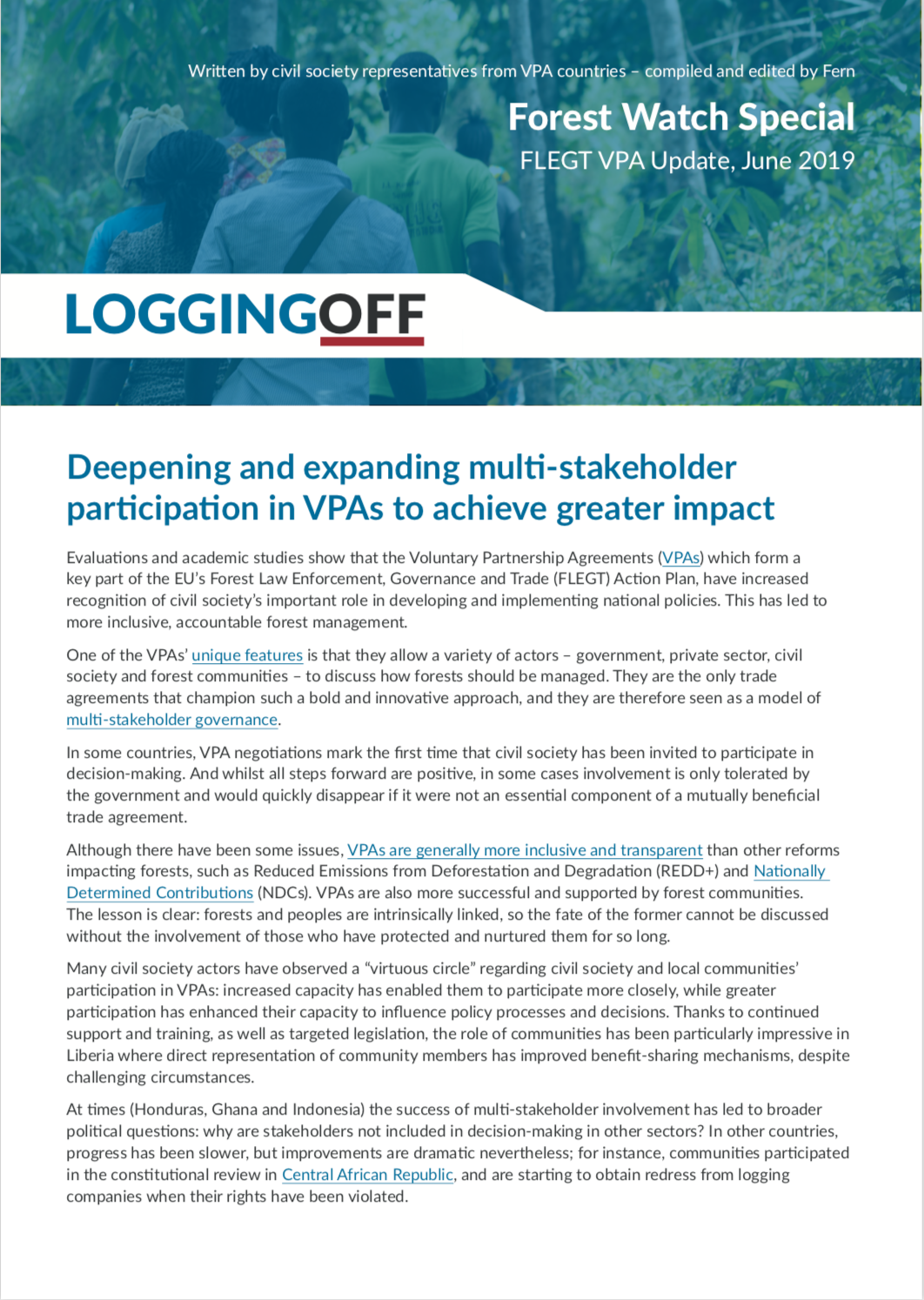
One of the unique features of Voluntary Partnership Agreements (VPAs) – which form a key part of the EU’s Forest Law Enforcement, Governance and Trade (FLEGT) Action Plan – is that they allow a variety of actors (government, private sector, civil society and forest communities) to discuss how forests should be managed. They are the only trade agreements that champion such a bold and innovative approach, and they are therefore seen as a model of multi-stakeholder governance.
The lesson is clear: forests and peoples are intrinsically linked, so the fate of the former cannot be discussed without the involvement of those who have protected and nurtured them for so long, and many civil society actors have observed a “virtuous circle” regarding civil society and local communities’ participation in VPAs.
But in many countries, the VPA process is at a crossroads. At this critical time, those moving towards FLEGT licensing should focus on sustaining effective civil society participation. Yet at the same time, efforts cannot be left to timber producing countries alone. The EU and Member States’ Competent Authorities could also help encourage CSO participation on the demand-side.
